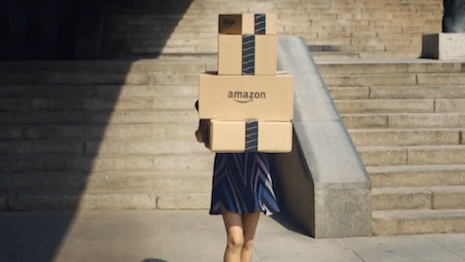- About
- Subscribe Now
- New York,
October 24, 2016

While many luxury brands were slow to take on ecommerce in the beginning, the sector is now leading the charge in luxury sales growth at 7 percent penetration in 2016, according to Bain & Company.
Startup culture, digital, peer-to-peer marketplaces and off-price retailers have paved the way for consumers to find a discount or cheaper version for almost any item or service for purchase. Through mobile and desktop, customers can do minimal research to find a bevy of options for products at their fingertips, especially for luxury, meaning these brands need to steer into the skid and adopt their own discounted market strategies to win out.
"The luxury market has reached a maturation point. Brands can no longer rely on low-hanging fruit. Instead, they really need to implement differentiating strategies to succeed going forward," said Claudia D’Arpizio, partner in Milan and lead author of the study at Bain. "We are already starting to see clear polarization when it comes to performance with winners and losers emerging across product categories and segments."
Discount goods’ threat
Luxury marketers that do not adopt to the rapidly changing environment of retail can find themselves missing out on opportunities for growth and consumer connection. As it becomes easier for consumers to find discounts and cheaper products, they now value good prices to make sure they are getting a good deal for a good product.
Example of Kenzo partnering with H&M for discount line and digital offering
Brands that cater to the affluent market should introduce some sort of discount platform such as Nordstrom Rack to compete. Discounted luxury products now makeup more than 35 percent of the luxury good market, but this will continue to sky rocket as more discount platforms become available and consumers become more interested in deals.
While the luxury market is expected to reach €280-285 billion, roughly $305 billion, in 2020, marketers for the affluent consumer will have to fight hard to adapt to the shift to digital to do so. Long-standing brands are now competing with emerging brands with difficulty, as technology has given them the tools to easily hold their own.
Now that digital has leveled the playing field, luxury marketers will have to become more accessible, leveraging omnichannel instead of relying on their statuses to carry them.
Additional threats
Additionally, as Amazon continues to threaten department stores, luxury retailers are fighting back by intertwining purchasing options with editorial content, according to a another report from L2.
While Amazon’s discounts help it appeal to the masses, it lacks in areas such as editorial content and an aesthetically pleasing shopping experience. Luxury department stores shine in this area and must effectively balance editorial content with purchasing capabilities to compete with the online giant (see more).
Bloomingdale's online shopping efforts
Across all regions, luxury ecommerce is growing at a faster rate than total sales, according to a senior analyst from Euromonitor International speaking at Luxury Interactive 2016 on Oct. 19.
Speaking on “Divergence in the Digital Landscape,” Ayako Homma noted that while the entire luxury market is expected to see a compound annual growth rate of 2 percent through 2021, luxury online sales are expected to rise at a CAGR of 7 percent in the same timeframe. To capture this growing piece of the luxury pie, brands will need to improve their omnichannel, ecommerce and mobile experiences (see more).
"Naturally, an influx of new market entrants is concerning to incumbents, who are worried about losing market share," said Federica Levato, partner based in Milan and co-author of the study at Bain. "But, we anticipate big opportunities for the brands that are willing to think and act more like their up-and-coming counterparts.
"Luxury brands need to adjust their expectations and their strategies as we enter an era in which growth is no longer a given," she said. "We’re now on a level playing field.
“Brands that adapt their business and take an omni-channel, customer-centric approach will rise to the top. Those that lag behind are sure to lose market share."
Share your thoughts. Click here